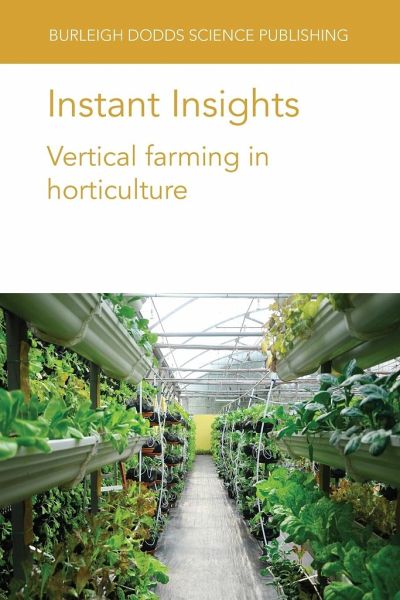
Instant Insights
Vertical farming in horticulture

PAYBACK Punkte
30 °P sammeln!
This specially curated collection features five reviews of current and key research on vertical farming in horticulture.

Vertical farming in horticulture

Rechnungen
Bestellstatus
Retourenschein
Storno